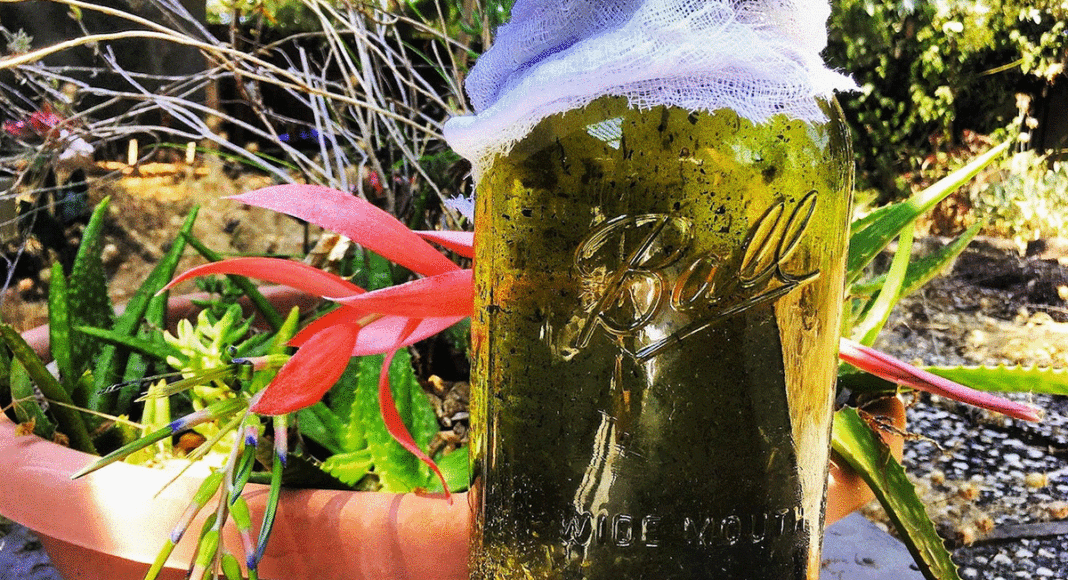From Willie Nelson’s infused coffee beans to mascara and dog treats, CBD is the latest buzzy product that brands are promoting as the next big cure-all. But is the hemp- or cannabis-derived substance officially known as “cannabidiol” a new form of snake oil, or can CBD really cure us of our 2019 ailments?
When cannabis first became legal in California, I went to a local dispensary in hopes of finding a topical CBD cream, as suggested by a friend to help relieve wrist pain. A clerk handed me a tiny, $60 pot of orange-flavored cream. Any non-orange types? “No, that’s the only one we have right now—it’s flying off the shelves.” There was a massive warning label saying something about cancer and birth defects. Oh great, that makes me feel good.
This stuff reeked of sickly sweet concentrated orange, like the worst-flavored Starburst. It was sticky, and it didn’t absorb or rub in, so all I could do was apply, plug my nose and wait for it to soak in. I didn’t want to be a believer, but it actually did help.
Unlike tetrahydrocannabinol (THC), CBD is non-psychoactive, but it’s still known for medicinal aid. From relieving post-New Year’s workout soreness to more serious medical conditions such as multiple sclerosis and seizures, CBD converts position the stuff as something of a miracle elixir.
“The science is becoming more and more recognized, and as we lift layers of prohibition, we will be able to see a lot more of that research being done,” says Pat Malo, executive director of GreenTrade Santa Cruz, a local cannabis-industry organization . “From the medical cannabis community, we have seen so many people come through and say the topical use has made the difference for their arthritis and skin conditions.”
CBD options have expanded since my orange-scented ordeal. There are edible CBD gummies, hemp oils and terpenes, not to mention the fancy face lotions and creams available from big-name brands like Kiehl’s, which you don’t need to buy at a dispensary. According to a recent Fortune article based on Cowen and Co. analysis, nearly 7 percent of Americans use CBD, setting the stage for a market worth of around $16 billion by 2025.
At The Source
Alissa Maya Meredith is one local small business owner who’s ventured into the wide world of CBD with her company Akasha Apothecary. With her love of gardening and background in cannabis farming, Maya Meredith created Akasha Apothecary’s CBD products to relieve and heal in a more holistic, natural way—that also smells good.
“I wanted people to know what mainstream products actually do to their skin. I used ‘natural’ products and had an adverse reaction, and so who do you call? The 800-number? Or email Johnson & Johnson?” she says. “You are just another number on a list of people who have had similar experiences. That’s scary.”
Maya Meredith has a garden in the Santa Cruz Mountains where she grows and harvests ingredients for her products, which vary based on what’s in season. She sells her body butter, oils, bath soaks and more in local businesses, including Estrella Collective and Om Gallery. Because her products contain less than .3 percent THC, they do not need to be sold exclusively in a dispensary.
She is also starting to offer CBD massages, and hopes to eventually open her own local brick-and-mortar wellness space. Having tried her body butter and salves, I can say that the local sourcing and herbs makes all the difference when it comes to feel and smell—let alone relief for sore joints and visible improvement of skin blemishes and scarring.
Maya Meredith says that in the last few years, she’s seen people become a lot more open to experimenting with CBD, including numerous clients who have bought products for grandparents who may have viewed CBD’s association with cannabis as a stigma in the past.
But this wide-reaching adoption also means there are CBD products out there that aren’t necessarily the best quality. There are CBD pills and candies for sale in gas stations, beauty salons and all corners of the internet, many sourced from overseas and unregulated. Buyers don’t always know what, or how much, they’re getting.
“The unregulated products that are available in some places are not U.S.-grown. The quality of that isn’t necessarily the same as locally grown CBD in the medical dispensaries and stores,” Malo says. “The purity—what it might be contaminated with—is unknown for a lot of non-U.S.-sourced products that are popping up in unregulated places or the internet.”
A recent study by the National Center for Biotechnology Information found that nearly 70 percent of CBD products purchased online were inaccurately labelled. It’s because of this unknown that small businesses like Akasha Apothecary are combating mass production with local, organic ingredients.
Maya Meredith believes that some people are probably experimenting with their own usage based on word of mouth, since CBD still isn’t tested in the same way that pharmaceuticals are. The Food and Drug Administration has approved only one drug containing CBD, Epidiolex, prescribed for treating seizures. The National Institutes of Health lists more than 500 ongoing and complete CBD-based studies, many of which have shown promise to help relieve epilepsy, opioid addiction, arthritis, and many other ailments.
While government labs and regulators debate where to go from here, CBD entrepreneurs like Maya Meredith are optimistic about the future.
“Santa Cruz is blessed in that we have so many amazing holistic and alternative medicines such as CBD and cannabis products,” she says. “I love creating products that are from the Earth that truly help people.”
For more information about Akasha Apothecary, visit akashaapothecary.com.













